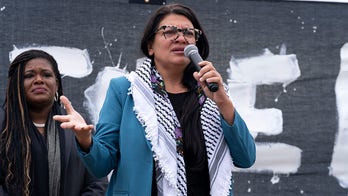A lawsuit filed on behalf of three immigrants claims that the U.S. Border Patrol Tucson Sector routinely breaks its own policies by holding immigrants in dirty and extremely cold cells for more than 24 hours without access to food, water, medical care or legal counsel.
The lawsuit was filed on behalf of three immigrants who said they were held in inhumane conditions while waiting to be transferred to the custody of Immigration and Customs Enforcement, which handles long-term detainment and deportations.
"It shocks the conscience," Nora Preciado, staff attorney with the National Immigration Law Center, told the Tucson Sentinel. "They're not providing food, water, or sleeping arrangements for thousands of people, including women and children."
"Our plaintiffs were detained for civil matters, but there is nothing civil about being deprived of water, provided inadequate or expired food, and being subjected to sleep deprivation," Preciado said. "We filed this lawsuit because the federal government has systemically failed to adhere to its own meager standards and constitutional requirements and thousands of people have suffered as a result."
The groups interviewed over 75 former detainees who described cells as freezing, filthy and lacking basic needs, such as beds.
In a statement issued Wednesday, U.S. Customs and Border Protection, the Border Patrol’s parent agency, said it takes the safety and welfare of detainees seriously.
"On a daily basis, agents make every effort to ensure that those in our custody are given food, water, and medical attention as needed. CBP investigates all allegations of misconduct, and is committed to making continued progress in detainee treatment and the emphasis of policies that protect human life and treat individuals with dignity and respect," the statement said.
CBP said its facilities are designed to be short-term in nature and house detainees until they can be processed.
According to the lawsuit filed in Arizona, the Border Patrol does not adequately screen for dangerous medical conditions or provide access to medical personnel. In one example, a detainee asked agents to help her 7-year-old daughter, a U.S. citizen, for help with what she thought was an ear infection. The agent told the detainee, "There is no medicine here."
The lawsuit also alleges that detainees are subjected to sleep deprivation while held in overcrowded, foul-smelling cells.
"Border Patrol seems to think these brutal conditions, and the human suffering that results, will deter immigration," James Duff Lyall, an attorney for the American Civil Liberties Union of Arizona, said in a statement to the Los Angeles Times. "The fact is that many of these people are fleeing persecution and violence."
The Tucson Sector has apprehended over 200,000 people in the past two fiscal years, although the Rio Grande Valley Sector in south Texas has seen more migrants cross through there recently.
The Associated Press contributed to this report.




